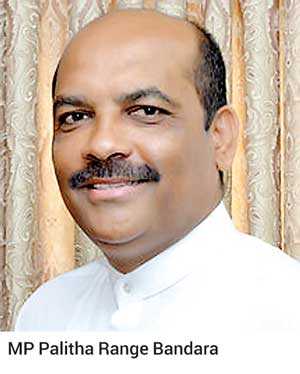Tuesday Feb 17, 2026
Tuesday Feb 17, 2026
Thursday, 8 August 2019 00:30 - - {{hitsCtrl.values.hits}}
Democracy in Sri Lanka and for that matter in any country rests on a tripod. The three legs being franchise, fundamental rights and an independent judiciary.
The beginning of democratic governance in Sri Lanka (or Ceylon as we were then known) can be traced to the Donoughmore Reforms of 1931 which established as unicameral form of governance for Sri Lanka (Ceylon) and established the State Council. 
The members of the State Council were to be elected by Universal Adult Franchise.
It is noteworthy that in Sri Lanka women over 21 years of age were entitled to vote at a time when the suffragettes of Britain were still fighting to lower the voting age from 28 years. Sri Lanka was in fact the first country in Asia to grant universal franchise.
The Donoughmore Reforms were followed by the Soulbury Reforms which granted independence to Sri Lanka in the nature of dominion status.
Dominion status was followed by the Republican Constitution of 1972 which in turn was succeeded by the Constitution of 1978. This last version of Sri Lanka’s Constitution transformed the system of governance for the strictly British method of parliamentary government to a hybrid system of presidential and parliamentary government.
While as I mentioned earlier democracy vests on a tripod, it is the rule of law that forms the bedrock upon which this tripod stands. Where there is no rule of law the whole structure collapses and anarchy results.
The first requirement in the rule of law in the strict adherence to the constitution of the country.
This brings me to the present situation in Sri Lanka where those who have sworn to uphold the Constitution are guilty of blatant violation of its salient provisions.
The first of these violations was when the President sought to illegally remove the Prime Minister.
The Article 46(2) of the Constitution provides that the Prime Minister can be removed only if he resigned nor ceased to be a Member of Parliament.
Neither of these events occurred and this matter was contested in Supreme Court which ruled that the President has no authority to remove the Prime Minister in one of these two eventualities.
Neither could the President take cover under Article 48(2) which provided for the dissolution of the Government in three instances only:
1. Rejection of the Statement of Government Policy
2. Rejection of the Appropriation Bill
3. Passes a vote of No-Confidence in the Government
Neither of these had occurred and the Supreme Court knocked the President down again.
Having failed in this endeavour, he then sought to dissolve Parliament in the teeth of Article 70 which provides that the President shall not dissolve Parliament until expiration of the period of not less than four years and six months from the date of its first meeting.
The four years and six months not having expired since its first meeting, the Supreme Court stuck the President down again.
Notwithstanding all these, the President continue to defy the Constitution over and over again.
Refuses to appoint the Ministers on the advice of the Prime Minister, which in terms of Article 43 of the Constitution is a mandatory requirement.
The Prime Minister has recommended Mr. Sarath Fonseka, and myself as Cabinet Ministers.
Again the Prime Minister recommended myself and Hon. Radhakrishnan and Hon. Ravi Samaraweera as State Ministers. But the President appointed Hon. Ravi Samaraweera and Hon. Radhakrishnan as State Minister while refusing to appoint me.
Again the Prime Minister sent my name and the names of members such as Wasantha Senanayake, Wijith Wijayamuni de Soyza, A.H.M. Fowzie, as Non-Cabinet Ministers.
The President however refuses to swear in these Members of Parliament. The only explanation for the President’s refusal is some imagined grudge he holds against these individuals.
As pointed out earlier, the President’s continued violation of the Constitution can only result at a complete breakdown of rule of law, resulting in total anarchy – a pathetic situation in democracy.